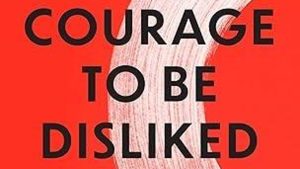You don’t need to hate your job to experience burnout.
Caring too much about your job could also be detrimental to your mental health, says Kandi Wiens, director of the University of Pennsylvania’s Master’s in Medical Education program.
For her new book, “Burnout Immunity,” Wiens interviewed hundreds of people working in high-stress environments, including hospital employees, police chiefs and financial executives.
She found that the people at the highest risk of burnout aren’t just those with demanding jobs — they genuinely love their work and routinely go the extra mile.
“When you love what you do and consider it a calling, or if you’re purpose-driven and care deeply about the impact of your job on others, it’s easier to become emotionally invested and overextend yourself,” she explains.
While identifying yourself through your work isn’t necessarily bad, it makes you vulnerable to burnout if you make too many personal sacrifices and lose sight of your own self-care.
Research has found that the danger is especially high in “helping” professions such as health-care workers, counselors and social workers, who often prioritize the needs of others and can face long, unpredictable work hours.
Much of the same vulnerability to burnout exists in people who are passionate about their work and prioritize their employer’s needs and goals over their own, Wiens notes. That includes teachers, activists, non-profit employees and small-business owners, among other professionals.
Self-care can help prevent burnout — to an extent
It’s great to find work that makes you excited, but that excitement shouldn’t dictate your self-worth.
“Setting and upholding work-life boundaries can help you reclaim some time for yourself and make room for other activities and relationships that bring you joy,” says Wiens.
When Wiens felt the slow creep of burnout at the start of her career, she started with three rules: No more work on weekends, no more “road warrior” travel schedule, and no more saying yes to every request out of fear of disappointing someone.
Work-life balance looks different for everyone, but you can improve yours by setting boundaries that safeguard your time, energy, productivity and overall well-being.
“You can reserve ‘do not disturb’ time on your calendar, schedule micro-breaks throughout the workday, negotiate to work from home a few days a week … whatever makes sense for your situation,” she says.
You can also create and uphold emotional boundaries. Wiens suggests taking some time after work — during your commute, for instance — to meditate, listen to music, call someone you love or engage in a different healthy activity to create a clean break between work and your personal life. Such a ritual can also help renew your emotional energy after a draining workday, Wiens adds.
It’s important to remember that burnout is an occupational phenomenon, at least according to its official definition. You can practice self-care, find hobbies and log off at a reasonable hour, but ultimately, Wiens says the onus of reducing burnout should be on “workplaces, not people.”
Want to land your dream job in 2024? Take CNBC’s new online course How to Ace Your Job Interview to learn what hiring managers are really looking for, body language techniques, what to say and not to say, and the best way to talk about pay. Use discount code NEWGRAD to get 50% off from 5/1/24 to 6/30/24.
Plus, sign up for CNBC Make It’s newsletter to get tips and tricks for success at work, with money and in life.
Read the full article here













